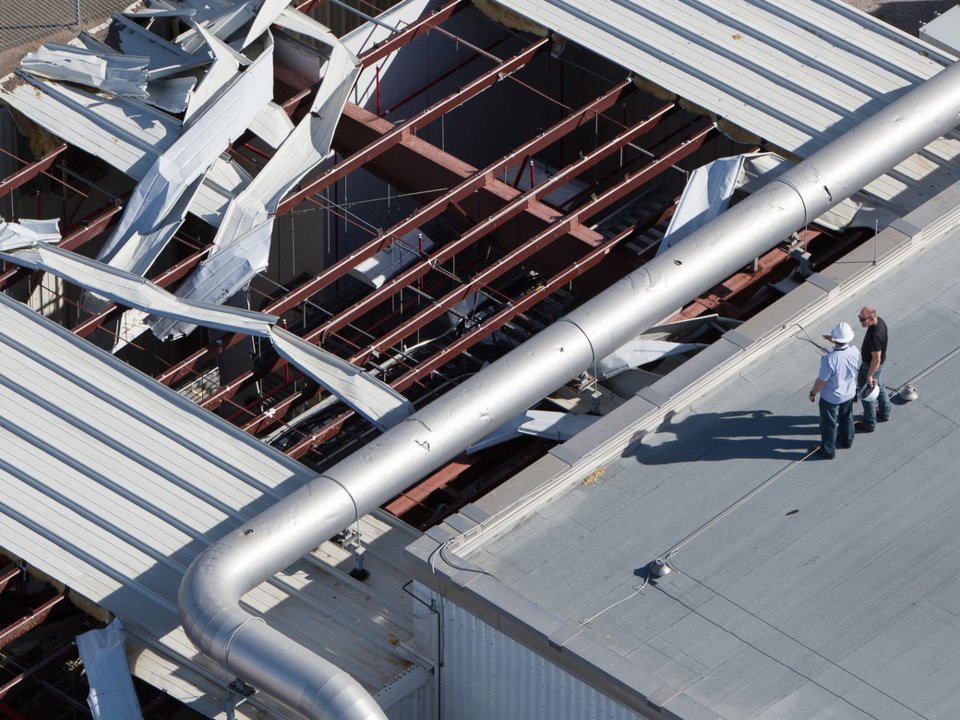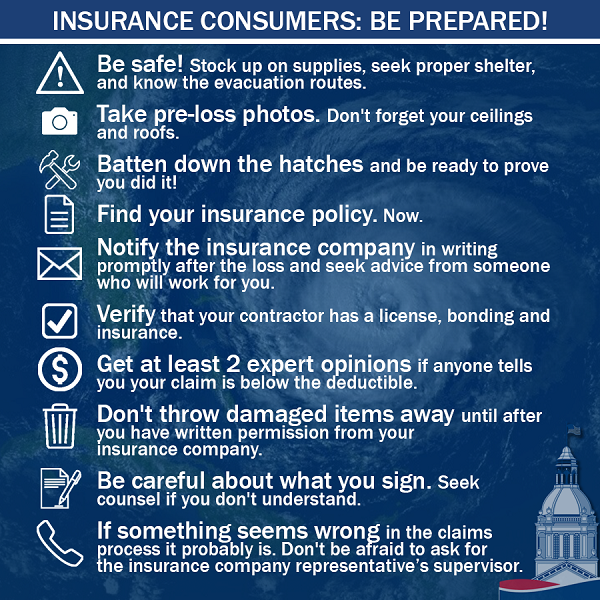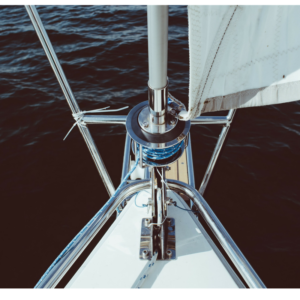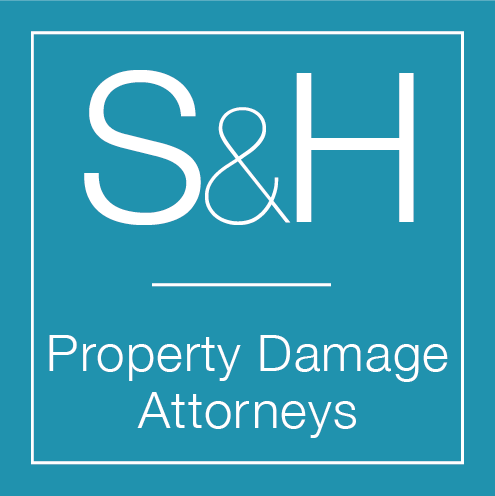by Zoltan Hovanyecz | Oct 19, 2018 | Florida Insurance, Hurricane Irma, Property Damage
 Hurricane. Fire. Water. No business wants to shut down from a natural or man-made disaster. When disaster happens, will you be ready to ensure the continuity of your business?
Hurricane. Fire. Water. No business wants to shut down from a natural or man-made disaster. When disaster happens, will you be ready to ensure the continuity of your business?
Insurance for your business consists of many aspects, the major one being business interruption. Business interruption is recovery for lost business income while your business is non-operational as a result of a covered insurance claim. While the protection from this type of coverage is invaluable, business interruption must be purchased in addition to your standard business insurance policy. Having business interruption coverage keeps you protected for lost profits during downtime.
Business interruption typically covers the period beginning when the company operations have ceased or been reduced due to a loss which is covered by the insurance policy (such as a hurricane) through the time that business operations have returned to pre-loss condition. Insurance companies label this time as the “period of restoration.” There are limits on how long a business can be in the “period of restoration” while policy benefits continue to be paid. In other words, you don’t have an unlimited amount of time to rely on your business interruption coverage bring your business back to full operational capacity after a loss.
Business interruption will also cover a limited amount of extra expenses incurred during the period of restoration that are deemed necessary. For example, if you have to hire additional staff to meet production demands due to equipment breakdown after a loss, extra expense would cover this. As with everything else, there are limits to extra expense recovery.
THINGS TO KEEP IN MIND WHEN ASSESSING YOUR BUSINESS INSURANCE PLANS:
Have a good accountant and keep great records.
Keeping an accurate record of your businesses’ accounting is the most important aspect of your business insurance plan. Accounting is important because you are going to need to provide calculations to the insurance company to justify your lost business income. The better your records, the easier it will be to prove your losses and will give you the best chance to recover 100% of your policy benefits.
Take an inventory before and after a loss.
Assuming you are already keeping great records, your inventory and stock is being updated regularly. Assuming you have time to prepare before a known disaster, get an accurate inventory before time runs out. Once you are able to get back into your business after the loss, you will need to account for the damaged and non-damaged inventory.
Have a post-disaster plan.
If you run a business that is dependent on utilities (water, power, internet, etc.), you should have a plan on how to restore those valuable utilities to your business as quickly as possible to prevent unnecessary losses after a disaster. Keep in mind that many policies have limits or exclusions on spoilage.
Having proper insurance coverage, accounting, documentation, and photographs can help ameliorate stressful situations. If you have any questions regarding your business coverage, don’t hesitate to give us a call.
by Zoltan Hovanyecz | Oct 6, 2017 | Florida Insurance, Hurricane Irma, Property Damage
Now that we are a few weeks removed from Hurricane Irma’s impact, most Florida citizens who sustained property damage have already reported their claims to their insurance companies. With the huge volume of Hurricane Irma claims, it’s likely that most insureds have not yet received a claims decision or even a payment from their insurance company.
As those claim payments start coming in, the important question is how do you know if the insurance company reimbursed you for the full amount of damages that your property sustained?
There are a few things to keep in mind when receiving that first check from your insurance company:
- Hurricane Deductible: Insurance policies carry larger deductibles for damages resulting from a Hurricane. Hurricane deductibles are typically 2% or 5% of the total amount of insurance coverage. In comparison to your typical $1,000.00 deductible, you could have up to a $15,000.00 deductible (at 5%) on a $300,000.00 insurance policy. If your insurance company is going to make payment, you won’t have to pay your deductible to anyone, but the amount your insurance company pays you will be reduced by your deductible. Keep your deductible in mind when assessing your damages as you may not have enough damage to meet your deductible.
- Documenting Damages: Pictures, pictures, pictures! Take as many photographs and videos of all of the damage inside and outside of your home. This includes fallen debris, water stained walls or ceilings, actual water on surfaces, wet baseboards, missing roof tiles, etc. Down the road, when the insurance company wants to avoid payment, it will be critical to show in photographs where you sustained damages as a result of the storm.
- Roof Damage: If you have sustained damage to your roof, make sure that a qualified and licensed roofer inspects and documents the hurricane damage to your roof. Get an estimate for a roof replacement or repairs. If you have leakage on the interior, make sure to have a tarp installed on your roof until repairs can be made.
- Hidden Damage: Damages may have occurred in places that are not readily visible to you—inside walls, in the attic, underneath roof tiles or shingles, behind cabinets, etc. Water will follow the path of least resistance and damage may not become evident until weeks or months after the storm. You can expect to discover more damages when you begin making repairs and opening walls.
- Signing a Release: The insurance company may offer you money in exchange for signing a Release. A Release typically precludes you from receiving any more money from your insurance company for your claimed damages. It precludes you from submitting supplemental claims to your insurance company and you also give up your right to sue your insurance company. If you sign a Release and find hidden damage down the road, you will not be able to get any more money. Releases are very serious. Do not sign a release from an insurance company unless you have consulted with an attorney.
If you’ve received a payment from your insurance company for Hurricane Irma damages, feel free to give us a call for a free claim evaluation. More likely than not, the insurance company did not pay you what you are entitled to under your insurance policy.
Your Property Damage, Our Problem!
by Zoltan Hovanyecz | Sep 7, 2017 | Florida Homeowners Insurance, Florida Insurance, Hurricane Irma, Property Damage
As we all prepare for Hurricane Irma, and after you have made sure you and your family are safe, it is important to take some quick steps to ensure that once Hurricane Irma passes, any hurricane related damage to your home or business is promptly reported to your insurance company, assessed, inspected by your insurer and other professionals, repaired by a reputable contractor, and ultimately paid for in full by your insurance company (less your deductible of course).
The Florida Justice Association has put together a great list of tips you should keep in mind to ensure everything with your insurance company goes smoothly after the storm. Keep in mind that immediately after the hurricane, there will be people out here looking to take advantage of our desperate citizens.  This is why one of the most important post-storm tips is to know exactly who you are dealing with and what you are signing before you enter into any agreements with anyone. Be careful of anyone who tells you not to worry about the cost of their services because your insurance company will pay for it. The bottom line is: do not sign anything you are not 100% certain about without first consulting an attorney familiar with the handling of property insurance claims.
This is why one of the most important post-storm tips is to know exactly who you are dealing with and what you are signing before you enter into any agreements with anyone. Be careful of anyone who tells you not to worry about the cost of their services because your insurance company will pay for it. The bottom line is: do not sign anything you are not 100% certain about without first consulting an attorney familiar with the handling of property insurance claims.
We hope that insurance companies will be quick, fair, and reasonable in adjusting Hurricane Irma claims, but there will inevitably be issues. We will be here after Hurricane Irma to provide legal advice and representation to our fellow Floridians affected by the storm and dealing with their insurance companies. We hope that the storm’s impact is minimal, but property damage is almost a certainty and you should ensure your property interests are protected, both before and after the Hurricane Irma.
Your Property Damage, Our Problem!
by Zoltan Hovanyecz | Feb 20, 2017 | Property Damage
 Known as the “Venice of America,” South Florida’s very own Fort Lauderdale is known as a very busy intracoastal city. From Naples to the active and engaging ports of Fort Lauderdale and Miami, Florida has become a prime location for cruising and boating activities. It is important that you have the proper knowledge to protect your water-going vessel in the blue-green oceans of the sunshine state.
Known as the “Venice of America,” South Florida’s very own Fort Lauderdale is known as a very busy intracoastal city. From Naples to the active and engaging ports of Fort Lauderdale and Miami, Florida has become a prime location for cruising and boating activities. It is important that you have the proper knowledge to protect your water-going vessel in the blue-green oceans of the sunshine state.
Keeping your maintenance up to date is not only one of the best ways to keep yourself protected but it also helps ensure years of safe boating. If your boat sinks or becomes damaged, one of the most important factors your insurance company will look for is to see if your boat was seaworthy prior to the incident. Failure to properly maintain your vessel may lead the insurance company to conclude that it was not properly maintained prior to the incident and this could jeopardize coverage for your claim. Having proper maintenance performed and keeping your boat in a seaworthy condition will aid in eliminating this concern.
Maintenance of the boat includes:
- Making sure all of your bilge pumps are working, appropriately sized, and properly placed within the boat for effective water removal. Consideration should be given to exceptionally heavy rains that could overwhelm smaller pumps.
- Making sure the weather boot is in working condition at all times (sailboats).
- Keeping up with regular maintenance for wear and tear.
- Counteracting galvanic erosion with proper anodes.
- Checking the status of your fire extinguisher and emergency tools/equipment.
- Having an alarm system in place for intruding or high water.
- Making sure you boat is properly secured to the dock or lift.
- Making sure your boat and dock area are free and clear of debris and dangers.
What should you do before filing a claim?
Have insurance, obviously.
The most important thing that you can do to protect yourself when operating your boat is to carry insurance. That means both liability insurance to pay for damage you cause to others and property insurance for your own boat to pay for damages you suffer. Along with keeping your boat maintained, it is always important to stay knowledgeable about the type of insurance you have in case an unfortunate situation arises.
Review your insurance policy.
Consequential damage: Make sure you have consequential or ensuing loss coverage. If a small part on your boat fails due to wear and tear causing it to sink, although the insurance company will not pay for that small part, you still want your insurance company to pay for the rest of your boat that is now at the bottom of the ocean.
Boat value: You will want to know what type of loss payment provisions you have in your insurance policy. Agreed-value is where you will pay an amount that has previously been agreed upon by you and the insurance company should there ever be an incident. Actual-value will be determined based on the depreciated value of the vessel at the time of the incident.
Towing: Make sure to review how your insurance company handles towing. Most US insurance companies place the responsibility of towing the boat on the insured.
International waters: If you are traveling across international waters, you will need to review your policy to see what is covered should an incident occur. Countries like Mexico currently do not recognize US boater’s insurance policies. They will also require you to always have proof of ownership should something ever happen.
Check marina requirements: If you are docking your boat at a marina, most will require that you have some form of liability insurance. Check with your marina to make sure your current coverage meet any applicable requirements.
Wreck removal: Make sure you have coverage above the value of your boat. Some insurance policies deduct the cost of wreck removal from the limit of liability applicable to replacement of the lost vessel. Wreck removal can be expensive and it can seriously eat into your policy limits.
Be able to prove ownership or financial responsibility of the boat at all times.
Because an accident can strike when you are in the middle of the ocean, hundreds of miles away from home, it is important to carry with you all of the information you may need to prove that you are the rightful owner of the boat. Showing ownership can include presenting the title of the boat, photographic evidence, or financial statements.
Make sure to keep both electronic and hard copies of your records.
Records for your boat include proof of ownership, your insurance policy, maintenance and repair records, photographs and registration. You should always have a copy of your records saved in multiple locations and in paper and electronic formats.
Get a police report.
This will most likely be the first question your insurance company asks. This is to ensure that there is an actual investigation occurring with your boat and the police department.
To learn more information regarding what you should do if you need to file a boater’s insurance claim, contact one our office today to speak with an attorney.
by Zoltan Hovanyecz | Aug 26, 2015 | Florida Insurance, Property Damage
Although you can never prepare for an insurance company’s dishonest tactics, you can certainly make sure you’ve done everything in your control to ensure the best chance of a fair and prompt resolution to your insurance claim stemming from hurricane damage to your home or business. This post will discuss the steps you can take before a hurricane strikes that will put you in the best position to recover the full amount of damages from your insurance company. The National Hurricane Center and a number of other sites have extensive guides on how to personally prepare your home and family for a hurricane so this post will only discuss the insurance aspect of hurricane preparedness.
Check Your Insurance Policy
Before you can even file a claim, you need to make sure you have the appropriate insurance policy and sufficient coverages. This includes making sure you have:
- Enough dollar amount of coverage under the dwelling portion (Coverage A) of your insurance policy to replace your entire home or business in case of a total loss. Too often when reviewing insurance policies I find that some clients do not even know that they are underinsured.
- Enough coverage for your personal property and scheduled items keeping in mind that typical insurance policies have very low limits for jewelry and collectibles unless you have specifically paid for scheduled or itemized coverages.
Document Your Home and Personal Property
When you file a claim with your insurance company, it would be helpful to show the condition of your home or business prior to the damage. Similarly, if you sustain damage to your personal property, the insurance company will want to see the condition and existence of the personal property prior to the damage.
I’ve found that the most efficient way of documenting personal property is by taking a video. This is very easy to do on your cell phone and can take as little as a few minutes to simply walk around your home documenting your personal property while narrating the descriptions. You can even store your video remotely on a cloud based service like Dropbox or iCloud should your phone become damaged or lost.
Have Your Home and Property Inspected
Insurance companies often deny claims saying that the damage is preexisting damage so it’s important to document the condition of your home prior to sustaining damage, especially your roof and interior finishes, showing that there are no current leaks or damage. Also have the rest of your home inspected and documented including screened enclosures, fences and air conditioning systems.
Know Who to Call When Disaster Strikes
Once you sustain damage to your home or business, depending on the severity, you should be prepared to call someone you trust to prevent any further damage to your home and to make temporary repairs. For example, if you sustain damage to your roof, you should be prepared to put a tarp on your roof. If you sustain water damage on the inside of your home, be prepared to call someone who can remove the water. And when you are ready to file an insurance claim, you should have someone you trust who you can call to handle your insurance claim for you.
If you have any questions on preparing your home or business for a hurricane or if you have suffered hurricane damage in Broward, Palm Beach, or Miami-Dade County, contact us for guidance or information.
For information on how to personally prepare yourself or family, a good resource is the National Hurricane Center’s hurricane preparedness guide which can be found here.
by Zoltan Hovanyecz | Jul 1, 2015 | Florida Insurance, Property Damage
Condominium living in South Florida is a popular and convenient choice that comes with pros and cons. One of the biggest problems we have to deal with involving condominiums is when a unit owner suffers water damage to their own condo unit due to a water leak or plumbing break from a neighboring condominium unit (usually from a unit above). This problem is made worse when one or both of the unit owners do not have property insurance. This is more common than you would expect, even when many South Florida condominium associations have a mandatory requirement that each unit owner carry insurance for their own unit. The condominium association itself must also carry property insurance for the common areas of the building.
In Florida, condominium associations and condominium owners are governed by Chapter 718, Florida Statutes. This chapter explains in detail which areas of the condominium building must be insured by the condominium association’s insurance policy and those areas that are the responsibility of the individual unit owner.
According to §718.111(11), a condominium unit owner is responsible for insuring the following areas:
- All personal property (within the unit or in limited common elements)
- Floor, wall, and ceiling coverings (tile, marble, wood floors, paint, etc.)
- Built-in cabinets and countertops (kitchen cabinets, bathroom vanities, etc.)
- Water heaters (one of the most common sources of water damage)
- Electrical fixtures
- Appliances
- Water filters
- Window treatments, (curtains, drapes, blinds, hardware, etc.)
Of course if you do not have your own insurance coverage and your unit suffers water damage, you will be responsible for repairing the damage in these areas. If the water damage was caused by someone else in a unit above you or next to you, you may be able to recover from that person directly or their insurance company if they have one. However, whether that person’s insurance will pay for the water damage to your unit will depend on the specific facts of the claim.
As a condominium unit owner in South Florida, you have to expect that your unit can be damaged not only by a neighboring unit or the condominium building itself (such as a roof leak or leak from a common plumbing line), but also from the forces of nature. The best way to protect yourself from the uncertainty of potential damage is by buying insurance for your condominium unit.
Should you find yourself in a situation where your condominium unit has been damaged either by a neighboring unit, the condominium building itself, or the forces of nature, contact Schatzman & Hovanyecz, P.A. to discuss the facts of your claim and how we can best help bring about a favorable resolution for you.
 Hurricane. Fire. Water. No business wants to shut down from a natural or man-made disaster. When disaster happens, will you be ready to ensure the continuity of your business?
Hurricane. Fire. Water. No business wants to shut down from a natural or man-made disaster. When disaster happens, will you be ready to ensure the continuity of your business?
 This is why one of the most important post-storm tips is to know exactly who you are dealing with and what you are signing before you enter into any agreements with anyone. Be careful of anyone who tells you not to worry about the cost of their services because your insurance company will pay for it. The bottom line is:
This is why one of the most important post-storm tips is to know exactly who you are dealing with and what you are signing before you enter into any agreements with anyone. Be careful of anyone who tells you not to worry about the cost of their services because your insurance company will pay for it. The bottom line is:  Known as the “Venice of America,” South Florida’s very own Fort Lauderdale is known as a very busy intracoastal city. From Naples to the active and engaging ports of Fort Lauderdale and Miami, Florida has become a prime location for cruising and boating activities. It is important that you have the proper knowledge to protect your water-going vessel in the blue-green oceans of the sunshine state.
Known as the “Venice of America,” South Florida’s very own Fort Lauderdale is known as a very busy intracoastal city. From Naples to the active and engaging ports of Fort Lauderdale and Miami, Florida has become a prime location for cruising and boating activities. It is important that you have the proper knowledge to protect your water-going vessel in the blue-green oceans of the sunshine state.